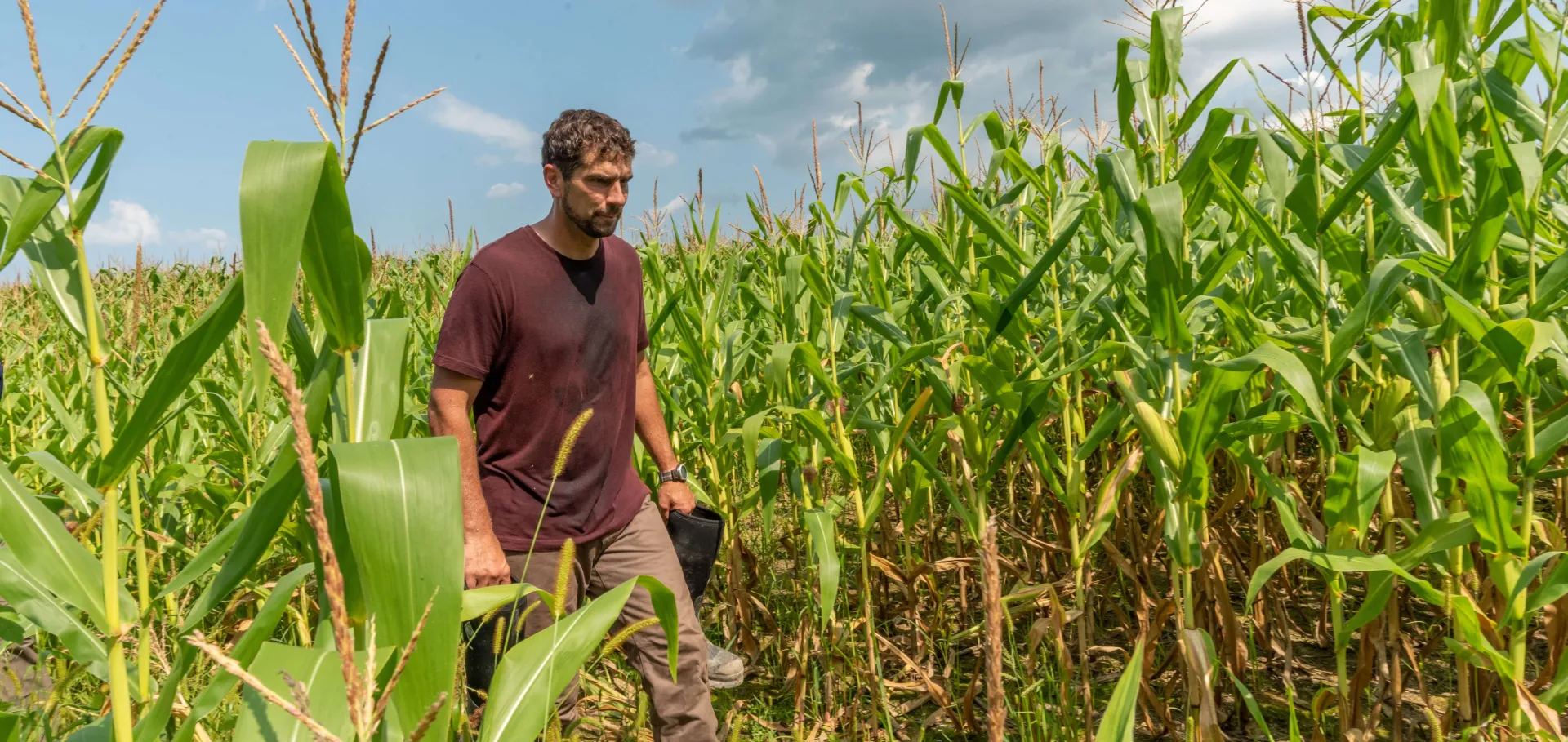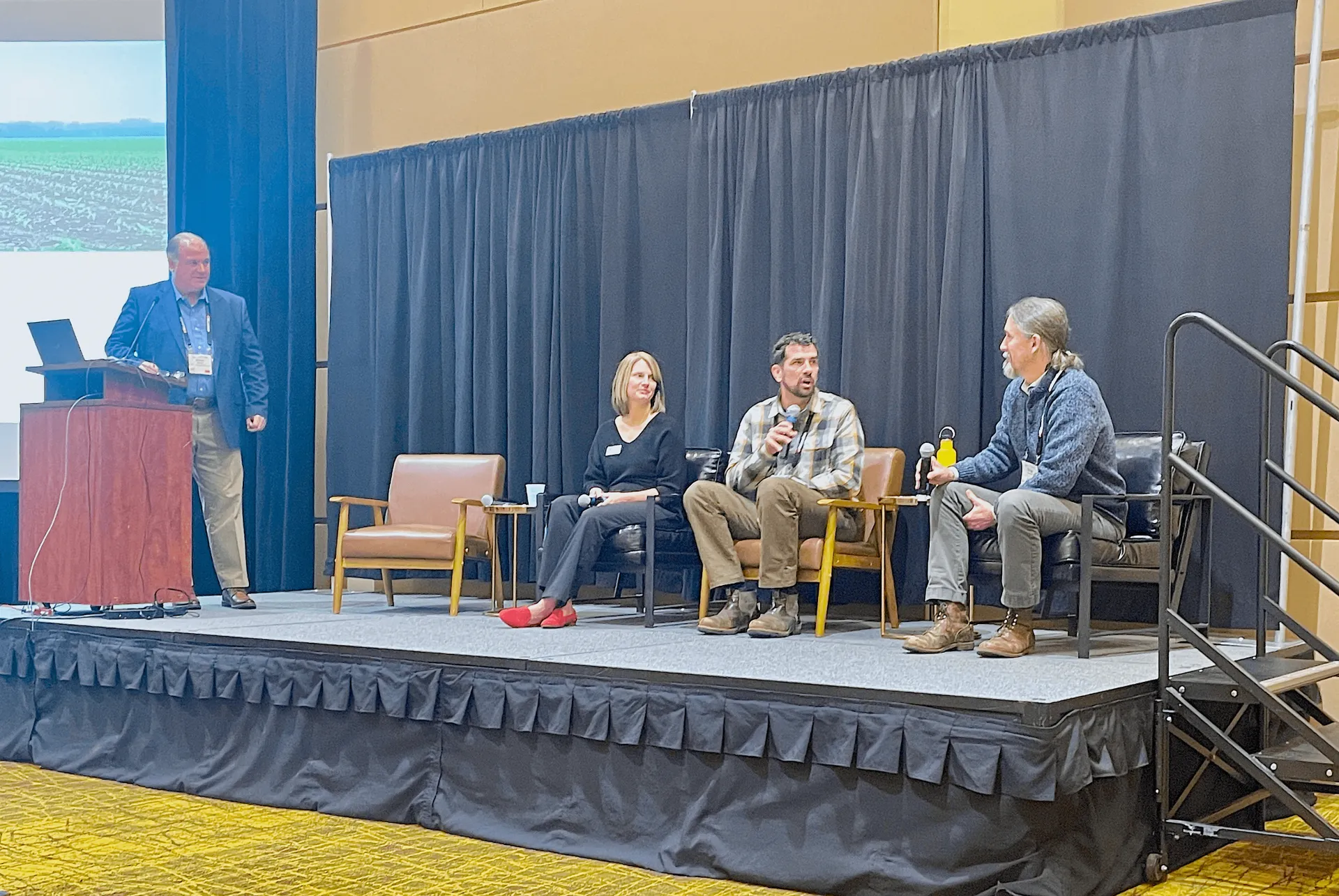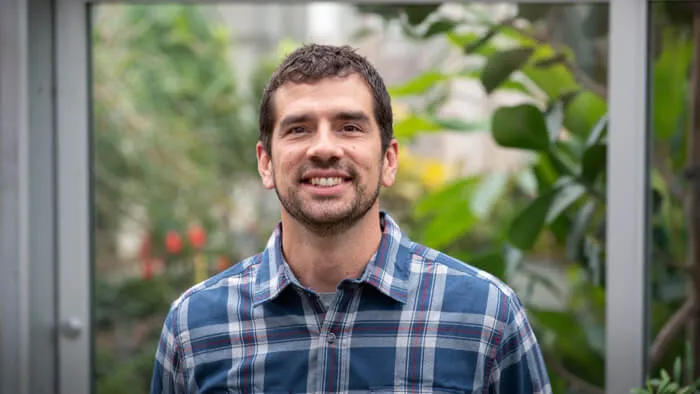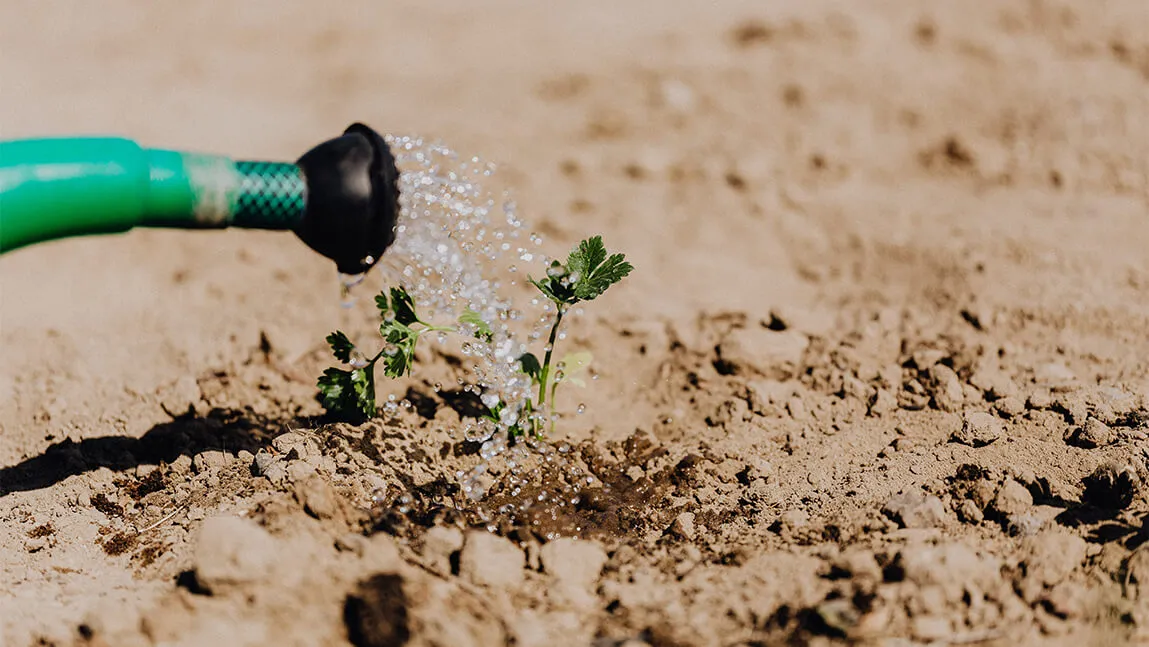Winning the Vogelmann Award is more than just another professional achievement for Faulkner; it is a recognition that Faulkner's work is shaping the future of farming in Vermont and beyond.
When Faulkner surveys the soil erosion in a Vermont farm field, he sees the Long Island Sound, about 300 miles away, filling with stormwater-carried sediment. No, he doesn’t have superhero vision, just the knowledge that Eastern Vermont is part of the Connecticut River Watershed and that extreme erosion events eventually carry these soils far away, depositing them in unseen locations.
Faulkner, who grew up on a farm in the South, has dedicated his career to addressing one of the most pressing challenges of our time: how to produce food without compromising water quality and ecosystem health.
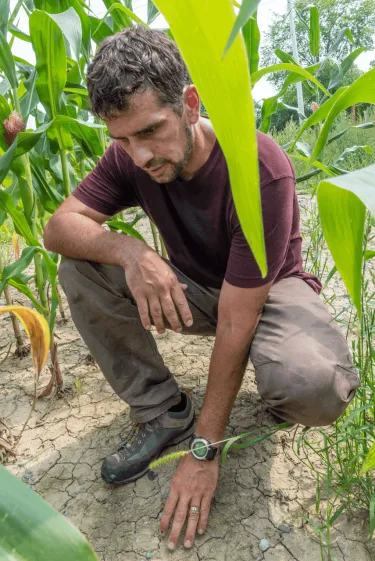
“We have to continue to produce food, and we can’t do that at the cost of our environment,” Faulkner said. His research focuses on hydrology, water quality, and innovative management practices that help farmers adapt to a rapidly changing climate.
Responding to a New Climate Reality with New Solutions
Vermont’s agricultural landscape now faces unprecedented variability. Record-breaking rains are followed by severe droughts, sometimes within the same growing season. “There’s no normal anymore,” Faulkner explained. “Farmers have to be prepared for anything and everything, and that makes managing soil and water resources incredibly difficult.”
Traditional practices often fail under these conditions, leading to nutrient runoff and soil erosion. Faulkner’s work seeks solutions that balance productivity with environmental protection, and his applied research has already delivered multiple, tangible innovations for farmers. At Blue Spruce Farm in Bridport, Vermont, his team installed novel phosphorus filters that captured up to 87% of dissolved phosphorus from tile drainage water: a significant breakthrough for water quality protection. “That was a huge success,” Faulkner said. “We hope this practice will be picked up by state and federal agencies and implemented on other farms.”
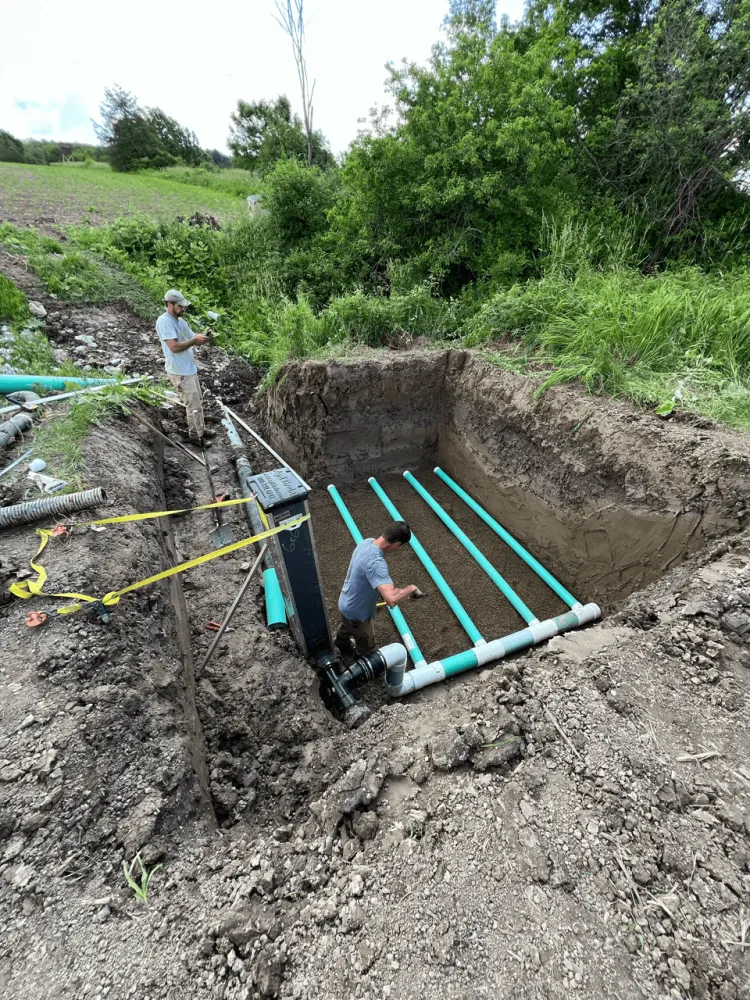
Another second success story is the introduction of “woodchip barnyards”, a sustainable practice that improves animal comfort while reducing nutrient runoff. The woodchips are sourced locally, providing revenue to local forest owners and sawmills, and once their use as animal bedding is over, they are repurposed as field fertilizer. “It’s a really cool connection between the logger and the farmer,” Faulkner noted. This woodchip barnyard practice has already been adopted across Vermont and the Northeast and is supported by both state and federal programs.
Connecting Research to Action
As interim director of UVM Extension’s Center for Sustainable Agriculture, Faulkner emphasizes collaboration and impact. “All of our research has an end use in mind, whether it’s informing policy, changing practices, or shaping programs,” he said. Vermont’s size and responsiveness allow his findings to move quickly from research plots to real-world application.
Looking ahead, Faulkner sees technology as a game-changer. His team is deploying miniaturized lab systems and advanced sensors to monitor watersheds more efficiently. “Technology will continue to improve the resolution of data we can collect,” he said.
“In ten years, we’ll have sensors that can do what these machines do now at a fraction of the cost.”
His greatest desire for his life’s work is to deepen scientific understanding of water (and nutrient) movement within soils and watersheds, enabling smarter, targeted interventions by farmers that save them money and protect water quality throughout the watershed.
A Well-Deserved Honor
Receiving the Vogelmann Award is an honor, but Faulkner is quick to credit his team and collaborators. “This is possible because of so many graduate students, research staff, technicians, postdocs, and colleagues,” he said.
“UVM is a really productive place to collaborate, big enough to have resources, small enough to be responsive. I feel so lucky to be able to do this applied research in such a great place as UVM and Vermont. ”
As Vermont navigates an uncertain climate future, Faulkner’s work offers real hope, and again, not because he’s a superhero, but because he provides empirically proven solutions to help local farmers tackle enormous global problems. His research isn’t just responding to change; it is anticipating it, ensuring that agriculture has a sustainable and abundant future.
The Hubert W. Vogelmann Award, presented annually by the College of Agriculture and Life Sciences, recognizes outstanding research and scholarship. The recipient of this annual award has their name engraved on a commemorative plaque and receives $2,500 to support their research efforts.
What Are Woodchip Barnyards?
A Vermont Innovation for Cleaner Water and Healthier Animals
Woodchip barnyards are a simple, yet transformative practice pioneered in Vermont to address two significant challenges: livestock comfort and water quality.
How They Work
- Instead of concrete, farmers use a thick layer of wood chips in winter loafing areas.
- The absorbent woodchips soak up water and manure, reducing runoff into streams and lakes.
- The upper layers of chips are later applied to fields as fertilizer, closing the nutrient loop.
Benefits
- Animal Health: Provides a softer, more comfortable surface for cows during winter months.
- Environmental Impact: Captures nutrients that would otherwise pollute waterways.
- Economic & Community Connection: Farmers purchase wood chips from local mills, creating a link between Vermont’s forestry and agriculture sectors.
- Recycling of Nutrients: Used Woodchips are layered on fields for natural fertilizer with the added benefit of the woodchips also providing microorganisms that improve soil health.
Adoption & Impact This practice has spread beyond Vermont, supported by state and federal programs that help farmers implement woodchip barnyards. It’s now recognized as a model for sustainable livestock management across the Northeast.
